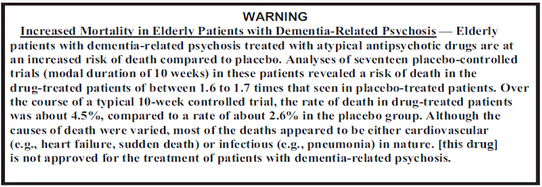Dementia is a disease that affects millions of people worldwide, and the numbers are only increasing as the population ages. One of the most difficult aspects of caring for a person with dementia is managing their behaviors. Outbursts of anger, aggression, and hallucinations are common in dementia patients, and they can be very distressing for both the patient and for the caregiver. In some cases, antipsychotic medication may be prescribed in an effort to manage these behaviors.
What Are Antipsychotic Medications? Antipsychotic medications are a class of drugs that are used to treat psychiatric conditions such as schizophrenia, bipolar disorder, and severe depression. These drugs work by changing the levels of certain chemicals in the brain that are involved in mood and behavior. Common antipsychotic medications include olanzapine, quetiapine, risperidone, and haloperidol. Why Are Antipsychotics Used to Treat Patients with Dementia? Patients with dementia often experience changes in mood or behavior that can be disruptive both to them and to those around them. Because antipsychotic medications can help manage these symptoms, they are sometimes prescribed “off-label” for patients with dementia even though they have not been specifically approved for this use by the FDA. However, because of the potential risks associated with these drugs, they should be used only when other treatments have failed or are not tolerated and only after a careful discussion between the patient’s caregiver and healthcare professional about the risks and benefits of treatment. The Antipsychotic Medication Black Box Warning for People with Dementia A black box warning is the strongest type of warning from the FDA. It is given to prescription medications that have potentially serious side effects. The FDA requires that manufacturers include black box warnings on the labeling of these medications. The purpose of a black box warning is to make sure that both patients and caregivers are aware of the possible risks associated with taking the medication. The specific black box warning will vary slightly for each medication but will usually read as follows: “Increased death and heart-related side effects in seniors with dementia-related psychosis: This medication isn’t approved for treating psychosis related to dementia. There is an increased risk of death in seniors (ages 65 years or older) with this condition who take this drug. Most deaths are caused by heart problems such as heart failure, or infectious conditions such as pneumonia” Generally, you can find these warnings printed on the label of your medication or on the patient information sheet provided by your pharmacy. Deciding whether or not to use antipsychotic medications with a dementia patient is a difficult decision that should only be made after careful consideration. There are potential risks and side effects associated with these medications, but there are also potential benefits. Ultimately, the decision about whether or not to use antipsychotic medication should be made by the patient's doctor in consultation with the patient's caregiver. Comments are closed.
|
AuthorTyice Strahl Categories
All
Archives
May 2023
|
- Home
-
Settings
- Assisted Living
- Home Care
- Independent Living
- Memory Care
- Skilled Nursing
- Adult Family Homes
-
All Communities
>
- Aspen Quality Care
- Avamere South Hill
- Brighton Court
- Brookdale Nine Mile
- Brookdale Park Place
- Cheney Assisted Living
- Cherrywood Assisted Living
- Colonial Court
- Cornerstone Court
- Evergreen Fountains
- Palouse Country
- Fairview Assisted Living
- Fairwinds
- Fairwood
- Fieldstone Memory Care
- Good Samaritan
- Maplewood Gardens
- Moran Vista
- North Point Village
- Orchard Crest
- Pine Ridge Memory Care
- Emilie Court
- Ridgeview Place
- Riverview Retirement
- Rockwood Retirement Community
- Rose Pointe Assisted Living
- Royal Park
- South Hill Village
- Sullivan Park Assisted Living
- Sunshine Health Facilities
- Touchmark Assisted Living
- Willow Grove
- Wind River
- Alderwood Manor
- Franklin Hills
- Manor Care
- North Central Care Center
- Providence St Joseph
- Regency at Northpointe
- Royal Park Health and Rehabilitation
- Spokane Veterans Home
- The Gardens on University
- Spokane Assisted Living Directory
- Locations
- Services
- About
- Senior Living Blog
- Contact


 RSS Feed
RSS Feed
